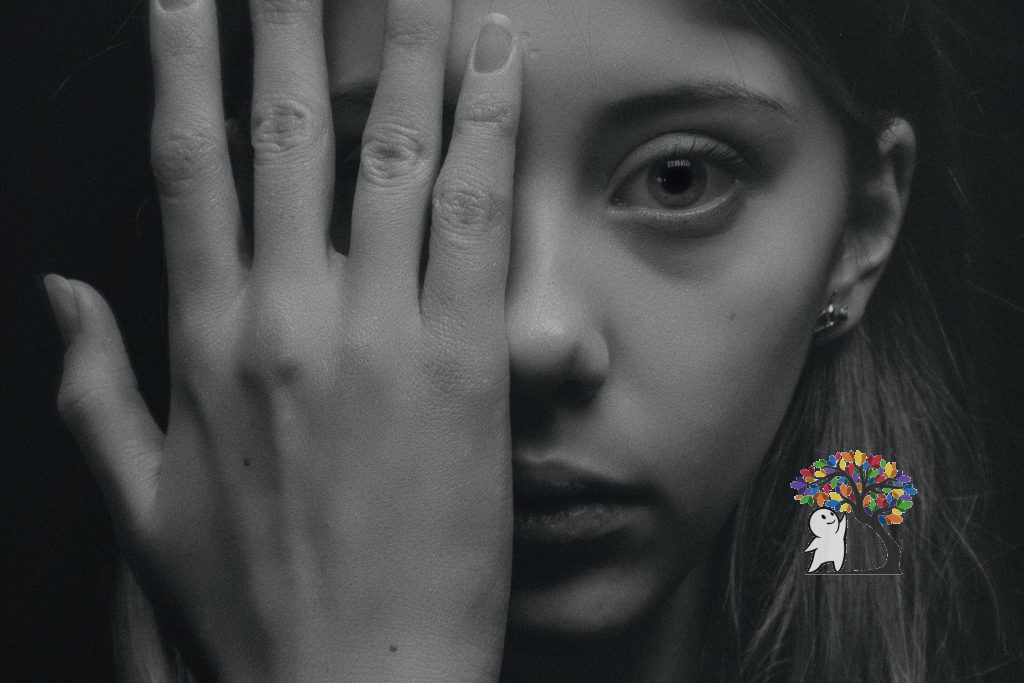8 Signs You Had a Difficult Past

Perhaps American author Stephen Chbosky said it best when he wrote, “We are who we are for a lot of reasons, and maybe we’ll never know most of them. But even if we don’t have the power to choose where we come from, we can still choose where we go from there.”
Having a difficult past — whether it was because of a toxic family, a harsh upbringing, an abusive relationship, or a traumatic experience — is not something we would ever want for ourselves. And try as we might to forget it or run away from it, until we learn to face it head on and make peace with it, it will never stop haunting us and dictating our path in life. After all, we create from the past until we heal from the past. And only when we are able to let go of it are we able to create, not from where we were, but where we want to go.
But how do you heal from a difficult past if you don’t even realize it’s something you’re struggling with? Well, with that said, here are 8 tell-tale signs that you had a difficult past:
1. You don’t have a good relationship with yourself.
Do you struggle with crippling self-doubt or self-loathing? Are you often your own worst critic and always quick to blame yourself the moment something goes wrong? Do you constantly struggle with feeling like you’re not good enough? Having a negative relationship with yourself is perhaps the most tell-tale sign that there are still some lingering emotional and psychological wounds you are healing from, and for most people, this stems from having a difficult past (Brown & Bosson, 2001).
2. You have a negative self-image.
Similar to the last point, having a negative self-image is unfortunately one of the most common consequences to growing up in a harsh environment or experiencing trauma at an early age (such as death, loss, heartbreak, abandonment, and abuse). People who have had a difficult past will often struggle with their self-esteem because, on some level, they have come to believe that they deserved the bad things that happened to them or that they will continue to be defined by it for the rest of their lives.

3. You have trust issues.
If you have ever been in a toxic relationship with someone, had a disruptive home life, or been abandoned by a parent at a young age, then it’s likely that you would develop trust issues towards other people. After all, the person who hurt you — whoever it was, be it a partner, friend, or family member — was someone you once trusted and cared about. So it’s understandable that you would find it difficult to open up and let yourself get close to someone again, because you know first-hand how much it hurts to put your trust in the wrong person, which brings us to our next point…
4. You struggle with your relationships.
As we’ve already established, having a difficult past can leave you with a lot of negative feelings towards yourself and others, which makes it all the more challenging to form and maintain close relationships in our lives. For some, this might manifest as an attraction towards the wrong kind of people (often those who are bad for us or treat us badly), while for others, it might be a tendency to self-sabotage by pulling away the moment we start getting close to someone. Either way, having a difficult past often leads to a fear of commitment and emotional intimacy, as well as difficulty being honest, open, and vulnerable even with the people we love the most (Liotti, 2004).

5. You tend to self-isolate.
The tendency to self-isolate, especially when we are feeling down, can often be traced back to a difficult past, causing us to become more guarded, detached, and self-reliant. We find it difficult to communicate our true feelings towards others, and perhaps as a result, often feel lonely and misunderstood. Spending time with friends and staying in touch with them may also seem too overwhelming to someone still struggling to come to terms with their past.
6. You have difficulty dealing with your problems.
Do you often feel panicky or overwhelmed when faced with the tiniest of setbacks and inconveniences? Are you easily stressed out by your problems and find it hard to think clearly? Or do you react in the opposite way, by staying in denial and deflecting with humor, sarcasm, and dismissiveness? Either way, struggling to deal with even the simplest of problems can be a sign that someone has had a difficult past they are still struggling to recover from (Carvalho, et al., 2013).

7. You struggle to manage your emotions.
Instead of controlling your emotions, more often than not, you feel like your emotions are the ones in control of you. You become overly emotional very easily and often find yourself snapping at people, suddenly feeling upset, or bursting into tears for no good reason. It’s very easy for your feelings to get hurt but very difficult to let go or move on from them, a constant struggle you most likely had to deal with because your past left you with a lot of negative feelings you didn’t know how to process.
8. You’re afraid to be happy.
Last but certainly not the least, we have the fear of happiness. And while it might sound a bit ridiculous at first — after all, who would be scared of being happy? That’s like having a fear of money or success! — this is actually something a lot of people struggle with, especially if they haven’t had the easiest time growing up. If you’re afraid to let yourself be happy (which often manifests as self-destructive tendencies, a fear of intimacy, or a compulsive desire to self-isolate), it could be because the feeling is unfamiliar to you and you don’t want to get too used to it. After all, everything we love, we’re afraid to lose, and our own happiness is no exception. It’s the consistency in pain that makes it so comforting, and it’s only human nature to go back to what feels familiar to us.(Joshanloo, 2013).

So, do you relate to any of the things we’ve mentioned here? Do you have a difficult past you’re still struggling to come to terms with? If so, don’t hesitate to talk to someone about it, and if you feel the need to, reach out to a mental healthcare professional today and seek help.
And if you liked this article and would like to read more, here’s what we recommend: Why You Feel Sad All The Time, 5 Signs You’re Living With Trauma, 6 Signs That Someone Is Secretly Hurting Inside, 7 Things Only Highly Sensitive People Can Relate To, and 7 Signs of Depression Caused By Your Childhood.
References:
- Brown, R. P., & Bosson, J. K. (2001). Narcissus meets Sisyphus: Self-love, self-loathing, and the never-ending pursuit of self-worth. Psychological Inquiry, 12(4), 210-213.
- Carvalho, A. F., Hyphantis, T. N., Taunay, T. C., Macêdo, D. S., Floros, G. D., Ottoni, G. L., … & Lara, D. R. (2013). The relationship between affective temperaments, defensive styles and depressive symptoms in a large sample. Journal of affective disorders, 146(1), 58-65.
- Joshanloo, M. (2013). The influence of fear of happiness beliefs on responses to the satisfaction with life scale. Personality and Individual Differences, 54(5), 647-651.
- Liotti, G. (2004). Trauma, dissociation, and disorganized attachment: Three strands of a single braid. Psychotherapy: Theory, research, practice, training, 41(4), 472.



Responses